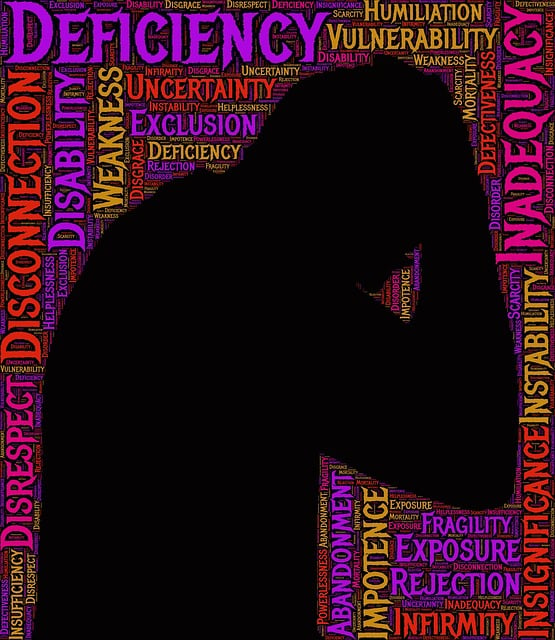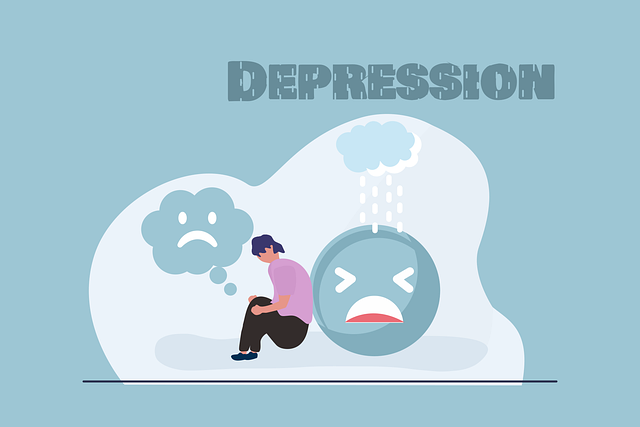In Denver, access to specialized Denver Developmental Disability Therapy is key to addressing unique stress-related challenges faced by individuals with developmental disabilities. Through evidence-based practices, including Cognitive Behavioral Techniques (CBT) and mindfulness, this therapy equips clients with tailored coping strategies for effective stress management. By reducing anxiety, depression, and behavioral issues, the program contributes to broader mental health policy goals of creating an inclusive society while enhancing clients' quality of life and resilience.
Stress management is crucial for individuals with developmental disabilities, offering a path to improved well-being. This article delves into the comprehensive approach of Denver Developmental Disability Therapy in teaching effective stress reduction strategies. We explore various techniques, from cognitive behavioral therapies that challenge negative thought patterns to mindfulness practices promoting calmness and relaxation. Additionally, we discuss building resilience and coping mechanisms for long-term stress management, empowering individuals to navigate life’s challenges with greater ease.
- Understanding Stress and its Impact on Individuals with Developmental Disabilities
- The Role of Denver Developmental Disability Therapy in Teaching Stress Management
- Cognitive Behavioral Techniques for Stress Reduction
- Mindfulness and Relaxation Practices: Creating a Calmer Mind
- Building Resiliency and Coping Strategies for Long-Term Stress Management
Understanding Stress and its Impact on Individuals with Developmental Disabilities

Stress is a universal experience, but its impact can vary significantly among individuals, especially those with developmental disabilities. In Denver, where Developmental Disability Therapy services are readily accessible, understanding stress and its effects on this population is crucial for fostering mental wellness. These individuals often face unique challenges that can make them more susceptible to stress-related issues, such as anxiety, depression, and behavioral difficulties.
The concept of stress management becomes essential in their overall development and quality of life. Mental Wellness Coaching Programs Development offers strategies tailored to address these specific needs, focusing on both the individual and their environment. By implementing Stress Reduction Methods, therapists and coaches can empower people with developmental disabilities to recognize and manage stress effectively, promoting resilience and enhancing their ability to navigate daily routines and social interactions. This proactive approach aligns with the broader goals of Mental Health Policy Analysis and Advocacy, aiming to create a more inclusive and supportive society for individuals with diverse needs.
The Role of Denver Developmental Disability Therapy in Teaching Stress Management

Denver Developmental Disability Therapy plays a pivotal role in teaching stress management techniques to individuals with developmental disabilities. Through tailored and compassionate approaches, therapists help clients develop effective strategies to cope with daily stressors, fostering emotional regulation and enhancing overall well-being. By combining evidence-based practices with an understanding of individual needs, this therapy offers a supportive environment where learning and growth can thrive.
Incorporating various stress reduction methods, such as mindfulness exercises and cognitive behavioral techniques, Denver Developmental Disability Therapy empowers individuals to manage their mental health proactively. Additionally, risk management planning becomes an integral part of the process, enabling mental health professionals to guide clients in anticipating and mitigating potential stressors. This comprehensive approach not only improves quality of life but also fosters resilience, allowing individuals to navigate challenging situations with greater ease and confidence.
Cognitive Behavioral Techniques for Stress Reduction

Cognitive Behavioral Techniques (CBT) are powerful tools for stress reduction, often utilized in Denver Developmental Disability Therapy programs. CBT focuses on identifying and changing negative thought patterns that contribute to stress and anxiety. By teaching individuals to challenge distorted thoughts and replace them with more realistic, positive ones, CBT helps manage stress effectively. This technique empowers people to take control of their emotional responses, fostering a sense of self-efficacy in navigating stressful situations.
Effective stress management requires learning specific communication strategies that can be incorporated into daily life. Denver Developmental Disability Therapy programs often design mental health education programs that teach these skills, aiming to reduce the stigma associated with mental illness. Through group discussions and role-playing exercises, individuals learn to express their feelings and needs assertively, improving interpersonal interactions and overall well-being. These strategies are crucial in managing stress, promoting resilience, and enhancing one’s ability to cope with life’s challenges.
Mindfulness and Relaxation Practices: Creating a Calmer Mind

In the realm of Denver Developmental Disability Therapy, mindfulness and relaxation practices are game-changers in the quest for emotional regulation. These techniques empower individuals to create a calmer mind, enabling them to navigate life’s challenges with enhanced resilience. By focusing on the present moment and cultivating awareness, individuals can break free from the cycle of stress and anxiety. Mindfulness meditation, deep breathing exercises, and progressive muscle relaxation are tools within this arsenal that facilitate self-care routine development for better mental health.
Through consistent practice, these mindfulness and relaxation techniques contribute to emotional healing processes. They allow individuals to recognize and accept their emotions without judgment, fostering a sense of inner peace. This, in turn, strengthens their ability to manage stress effectively, ensuring they remain composed even amidst life’s whirlwind. The calmness cultivated through such practices reverberates in every aspect of life, from bustling daily routines to challenging interactions, creating a profound impact on overall well-being.
Building Resiliency and Coping Strategies for Long-Term Stress Management

Building resilience is a cornerstone of long-term stress management, especially for individuals with developmental disabilities in Denver who often face unique challenges. Through Denver Developmental Disability Therapy, coping strategies can be taught that empower clients to navigate stressful situations effectively. This involves fostering mental flexibility and emotional agility, enabling them to adapt and bounce back from adversity. By integrating practices like mindfulness meditation into therapy sessions, clients learn to stay present, regulate emotions, and cultivate a sense of calm even amidst challenging circumstances.
Over time, these techniques contribute to a significant reduction in the Mental Illness Stigma Reduction Efforts, as individuals gain a deeper understanding of their emotional responses. Additionally, building resilience strengthens one’s ability to cope with life’s stressors, leading to improved mental health and an enhanced quality of life. Confidence-boosting activities within therapy sessions play a crucial role in this process, encouraging clients to embrace challenges and view them as opportunities for growth.
In light of the above discussions, it’s clear that comprehensive stress management techniques are invaluable for individuals with developmental disabilities. Denver Developmental Disability Therapy plays a pivotal role in teaching these strategies, empowering folks to navigate life’s challenges more effectively. By combining cognitive behavioral techniques, mindfulness practices, and building resiliencies, individuals can develop robust coping mechanisms for long-term wellness. This holistic approach not only mitigates the impact of stress but also enhances overall quality of life.










